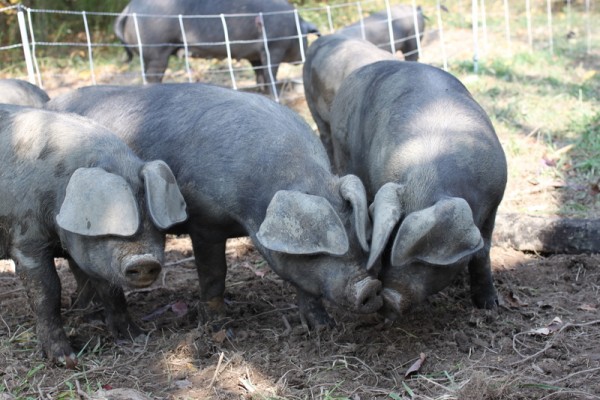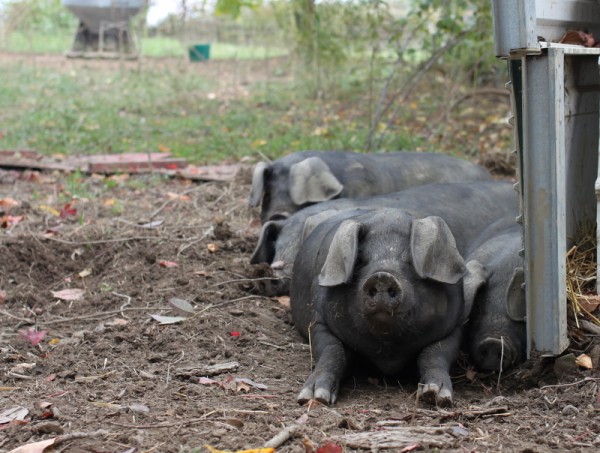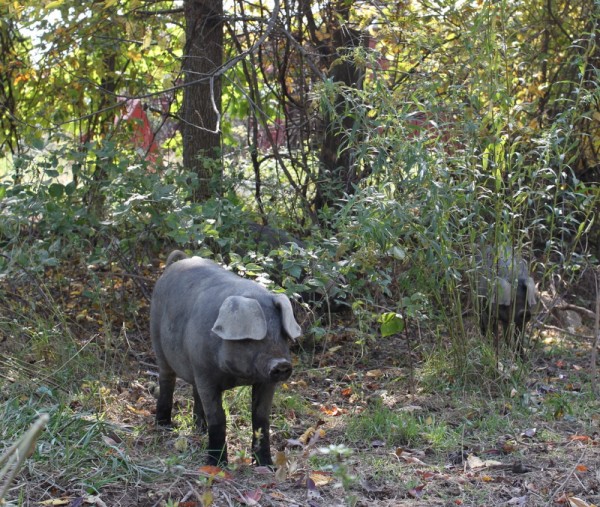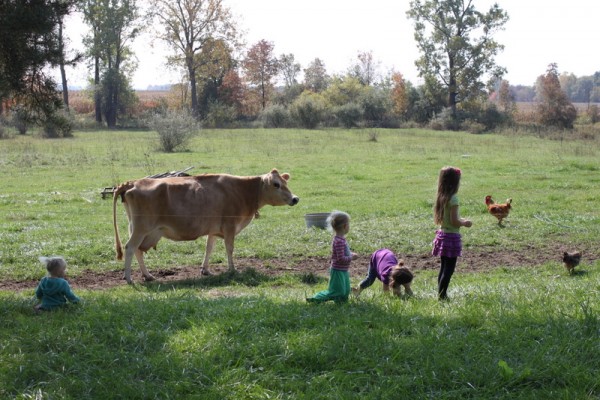 A few months back, an Internet friend of a friend said she had a couple unclaimed pigs in a litter she was pasture raising on her farm. Via Facebook, I asked a few questions, made a few offers, and confirmed plans to slaughter the pig ourselves.
A few months back, an Internet friend of a friend said she had a couple unclaimed pigs in a litter she was pasture raising on her farm. Via Facebook, I asked a few questions, made a few offers, and confirmed plans to slaughter the pig ourselves.
Just as casually, I set up a time to meet my meat, a Large Black hog. I owed the farmer some homemade bacon and pancetta bartered for a deposit on the growing pig and wanted to see her homestead. It was a simple friendly visit, one of many farm trips I've made, with deeper implications.
I believe that everyone who eats meat ought to visit a farm where their poultry, beef, pork, or lamb comes from at least once. Here's why:
Realize Your Place In The Web of Life
Americans can buy butchered, trimmed, plastic-wrapped cuts from the meat counter that are as easy to cook as a vegetable. Simpler still, pre-cooked rotisserie chickens and frozen products only require a little reheating to serve. Restaurant dishes usually have no bones, scales, or other indication that the protein once belonged to a living thing.
This is all a fine, convenient thing, but it allows many people to be completely disconnected from the reality of eating meat. Eating meat - just like eating vegetables - requires that a living thing dies.
While some make the distinction between animals as sentient beings and plants as not, others argue that plants have feelings too. It cannot be debated that humans must eat something to survive.
Our place in the world is such that we can make choices about what we eat. Some tasty things, like pigs, pumpkins or lambs are cute. Thinking about an adorable hog dying for our morning bacon is difficult for some, but it must be faced. Death begets life.
Ensure That Conditions Match Your Values
Farmers who raise meat animals have many options available in the feeding, sheltering, pasturing, and slaughtering of their animals. Consumers have many options about these same conditions. Home cooks should be able to ask the farmer or butcher about farm conditions at the point of sale. Producers should answer honestly and always do in my experience.
But seeing is believing. Watching pigs denude an area in a matter of minutes to make a wallow clued me in to their destructive potential. Witnessing chickens stand in the rain rather than run for shelter makes me realize how dependent they are on humans. Seeing an animal suffering from mastitis makes me feel thankful for the availability of antibiotics.
A trip to a farm shouldn't be an excuse to 'check up' on a farmer but to truly understand the benefits and consequences of different agricultural choices. If something you see doesn't jive with your values, ask about it and don't be afraid to change your eating habits.
Appreciate the Farmer
I have never visited a farmer who was not passionate and proud of her job. And in the midst of showing off their farm, the farmer is constantly working - carrying water to hogs while talking about their breed, hauling feed while telling me about the source of the grain, or explaining what the half-built coop will look like when it's finished.
We all hear that farming is hard work. When you witness the morning milking, daily feeding, breeding and birthing, managing fences, and time spent harvesting, the toil becomes more tangible. You see that farming is hours on the clock and exhausting wear on the body.
I return home from meeting my meat with a feeling of abundant appreciation. I eat a meal knowing the labor spent converting sunlight into delicious calories. I give true thanks for the lives interconnected by the animal's diet, the farmer's effort, and my choice to consume ethically-raised meat when I can.
What do you think? Have you ever looked your meat in the eye?



